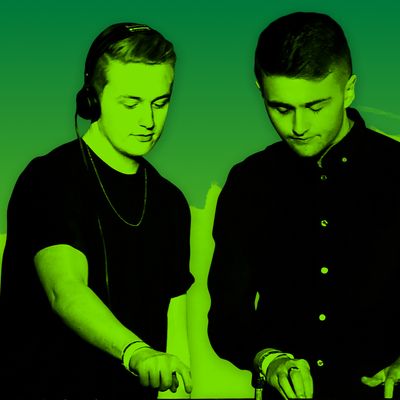
Ahead of the 2016 Grammys, Vulture spoke with a handful of nominees about the songs from their latest albums that were toughest to write. Up next are Disclosure, whose Grammy-nominated 2013 debut album sparked a house revival throughout Europe and, more recently, North America. Their sophomore album, Caracal, nominated for Best Dance/Electronic Album, saw the brothers Howard and Guy Lawrence refine that retro sound with greater attention to their individual crafts — Howard on his lyrics, and Guy on the duo’s production. But sometimes splitting the workload turned out to take much longer than expected, as Guy explains proved to be both a headache and a blessing behind “Echoes.”
This is a song that Howard sings — there’s no feature. It was the first one we started and the last one we finished. The way we write, usually, it’s very quickly. Songs like “Latch,” “Omen,” and “Magnets” — most of our songs — we kind of know if it’s gonna be good or not. We usually get the bulk of the writing done within a couple of days, and then it’ll be weeks and months of tinkering after that. This one, though, we had two or three different verses, and we just weren’t happy with any of it. We were so convinced that the chorus was really good — it was a garage-y, more clubby track, meant as kind of a throwback to our last album and the blend from old to new. But it took us so long to nail a melody that we were happy with in the verses that wasn’t too cheesy.
Originally, Howard was singing really high. He’s got a really nice voice, but it sometimes loses its soulfulness when he goes super high. It was a bit of a bad key for him, and we all knew it wasn’t right. Even though I don’t really write the lyrics — I much more consider myself a producer than a lyricist — I’m still there to say, “That’s not very good.” It’s weird because sometimes if Howard doesn’t like something that I do, I’ll be like, “Why?! Why don’t you like that?!” But if he does something I don’t like, I’m allowed to say it [Laughs].
So this one time I told Howard and Jimmy [Napes], “I’m gonna keep working on the beat in the studio. You guys go to Regent’s Park, which is the closest park to our studio. Go sit, play Frisbee, and relax. Then write a new verse. We’ll see if going outside of the studio will help.”
They went away for about an hour, came back, and Howard went straight into the vocal booth and started recording the verses that they’d written in the park while they were playing with Howard’s dog. I took one listen to it and was like, finally, that’s the one. I think they just needed a different headspace and different vibes to really get across the verse they wanted.
It took us about a year from first making the beat until actually pressing finish and sending it off to master, which is maybe the longest time we’ve ever spent making a song. Some songs, like “Magnets,” for instance, we wrote with two weeks left before our deadline of actually delivering the album. That one we wrote and mixed in a couple of days, just on my laptop while on tour. But it was quick because we knew the song was great and didn’t need any rewrites. “Echoes” was just a bitch to finish.
When anyone sees someone up in a DJ booth or making electronic music, they’re now just considered a producer. I don’t think people even generally know what that means — to be a producer, versus being a songwriter, versus being a DJ. There are so many DJs who don’t write any of their own songs; they’re just good DJs, and they wanna have some music behind their name, so they buy songs. For us, we were playing the drums, guitars, and pianos since we were born. Music comes far earlier in our lives than DJing and producing; we’re definitely musicians before anything else: musician, then songwriter, then producer. With Settle, there are a couple tracks on there that haven’t got any lyrics, like “When a Fire Starts to Burn” — it’s much more sample-driven, which would literally take both of us sitting at the computer tinkering and producing together. With Caracal, Howard really wanted to do a lot more of the songwriting and I’d produce it. By separating those roles, it just allowed us to do things much better.
Even when we work with other vocalists, it’s no different. We like to invite them into the band; it’s not like we’ve got a song prepared for them, like here’s the melody, here are the words, sing that. They’re there from the birth of the song. And when we have someone else in the room, it allows us to write much more difficult melodies that we otherwise couldn’t sing. If we had written “Echoes” for someone else, and stuck with that [high-ranged] verse, it might’ve worked.


